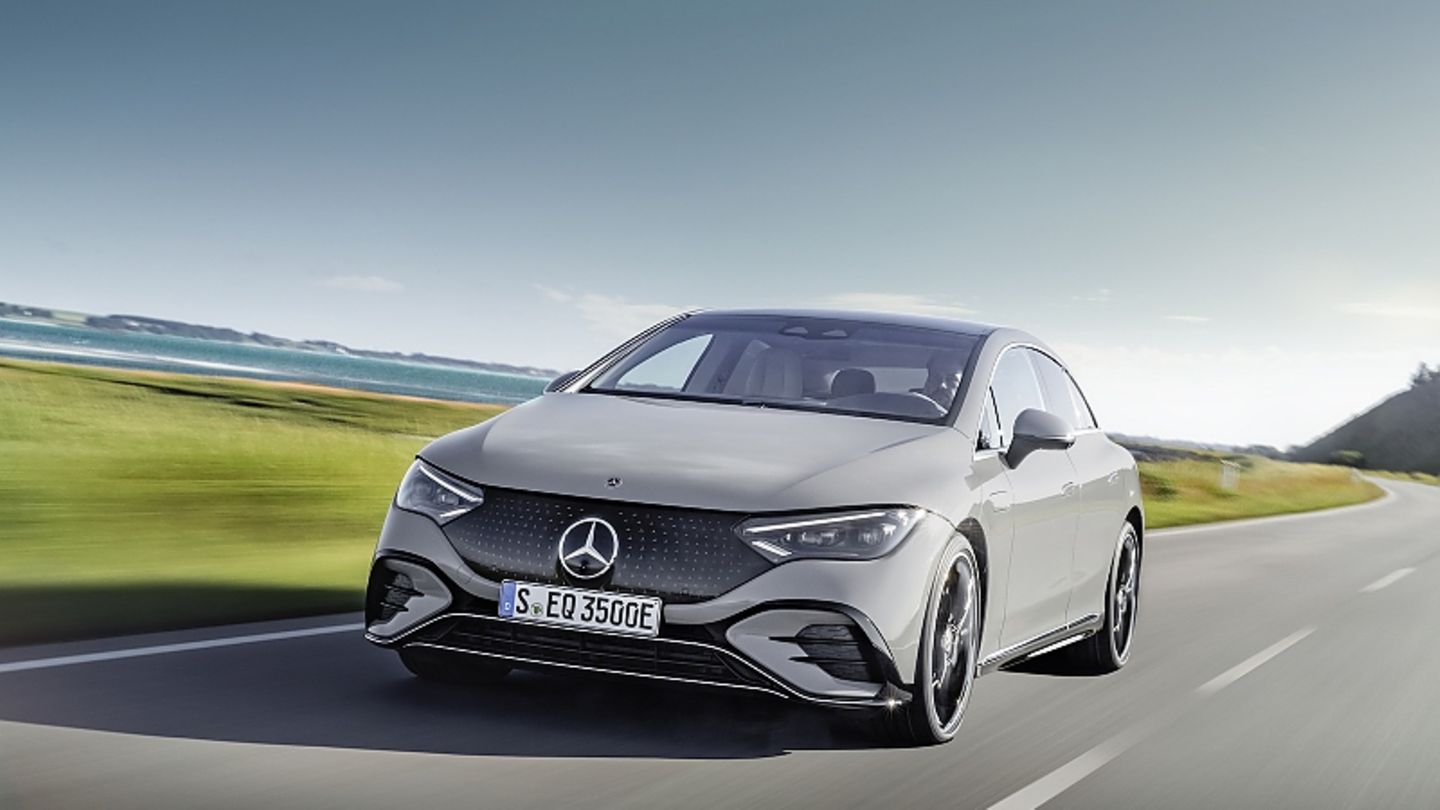A study by the management consultancy Deloitte shows that electric mobility is picking up speed. However, the trend is not yet sustainable. Above all, rising electricity prices could reduce the attractiveness of the Stromer.
The strategies of car manufacturers are always so easy to read. Take Mercedes for example. By 2025 at the latest, every second vehicle with the star should be either a PHEV or a BEV model. “The road towards electromobility is accelerating at Mercedes,” says Daimler boss Ola Källenius almost euphorically. Or Volkswagen. Europe’s largest automaker is developing an almost biblical zeal to advance electromobility. “By 2030, the global market for electric vehicles will also have caught up with combustion engines in terms of sales. E-cars will then be significantly cheaper than combustion engines,” predicts VW boss Herbert Diess. However, this can only succeed if the scaling effects are large enough.
Ambitious goals. The only question is, are customers going with you? If not, the polished electromobiles will stand like lead in the online and physical sales rooms. And every freshman economics student knows that when demand isn’t there, prices plummet. Management consultancy Deloitte surveyed more than 26,000 drivers worldwide to find out what drivers expect from electromobility. Is the breakthrough imminent? Or do car manufacturers like VW, who put everything on the electromobility card, run the risk of wasting billions in the sand. After all, the customer is still king.
The sales strategists in Stuttgart, Wolfsburg and Ingolstadt can breathe a sigh of relief. According to the Deloitte study, around 30 percent of Germans would choose a hybrid vehicle the next time they buy a car. This is an increase of 14 percent compared to the previous year. A thoroughbred Stromer would be the first choice for 15 percent (2021: 9 percent). But that also means that the vast majority of drivers do not trust the electric roast and continue to rely on a combustion engine as a drive or range safety net. When asked which drive they prefer for their next vehicle, 49 percent of Germans chose a petrol or diesel engine.
The biggest e-mobility skeptics come from the USA: 69 percent are loyal to diesel and above all to petrol engines. It is also alarming that in China, 58 percent have a similar attitude. In addition, around 41 percent of the Germans surveyed would reconsider their decision to buy an electric vehicle if the price for charging was similar to that for fossil fuels. Not an unthinkable scenario given the current electricity price spiral. For 46 percent, state subsidies are also an important reason to buy. Combined with the fuel price sensitivity of car drivers, the trend towards electromobility is not as clear as car manufacturers would like it to be. After all, 61 percent of electric vehicle buyers give concern for the climate as a reason for switching to an electric car.
Topics such as range and the charging infrastructure continue to concern people. When asked about their biggest concern about electric mobility, around a quarter of drivers put the range first, followed by the charging infrastructure (14 percent). The drivers’ range expectations are demanding: the Germans expect that you can travel at least 616 kilometers with one battery charge. This roughly corresponds to a distance from Munich to Düsseldorf.
It gets just as interesting when it comes to charging: a whopping 70 percent assume that they can charge their car most often at home, 17 percent at public charging stations and 12 percent at work. Given the realities of power supply, this might be a rude awakening for some. Deloitte expert Dr. Harald Proff makes it clear: “Range, charging infrastructure and lower acquisition costs are essential prerequisites for making electromobility suitable for the masses. If these are not given, it will not reach large parts of society, despite the current increase in sales figures. With regard to the goal of EU, from 2035 no more new fossil-fuelled vehicles, it is important that both companies and the state create the appropriate framework conditions.” BMW boss Oliver Zipse agrees. Although e-mobility has arrived in everyday life, “but the charging infrastructure is not keeping up. It has to be expanded quickly and noticeably here in Germany and throughout Europe,” says Zipse.
Once the Germans have decided on an electric vehicle, some have more money: 44 percent of those surveyed are willing to pay more for alternative drives. The only question that matters is how much. 31 percent are willing to spend 400 to 2,000 euros more, 13 percent even more than 2,000 euros. The Germans want to dig far less deep into their pockets when it comes to autonomous driving or connectivity. Despite all the concerns about the environment and the climate, car sharing has not yet arrived in Germany, which is probably also due to the corona pandemic. According to the Deloitte study, two thirds (67 percent) prefer their own car. Automotive individualism is only more pronounced in the USA. Far behind, the Germans use public transport (15 percent), followed by bicycles (9 percent). Interestingly, sharing models as well as taxi and ride hailing only account for 5 percent.
The Germans don’t have it that way with sharing anyway. Only 55 percent of those surveyed would share personal data with a manufacturer or third party in exchange for information on traffic jams and alternative routes. When it comes to updates and maintenance, the figure is 54 percent, and 53 percent when it comes to software updates via WLAN or mobile communications. For comparison: In China, India and Southeast Asia, approval for these and other use cases is well over 70 percent
Source From: Stern
I am a 24-year-old writer and journalist who has been working in the news industry for the past two years. I write primarily about market news, so if you’re looking for insights into what’s going on in the stock market or economic indicators, you’ve come to the right place. I also dabble in writing articles on lifestyle trends and pop culture news.




